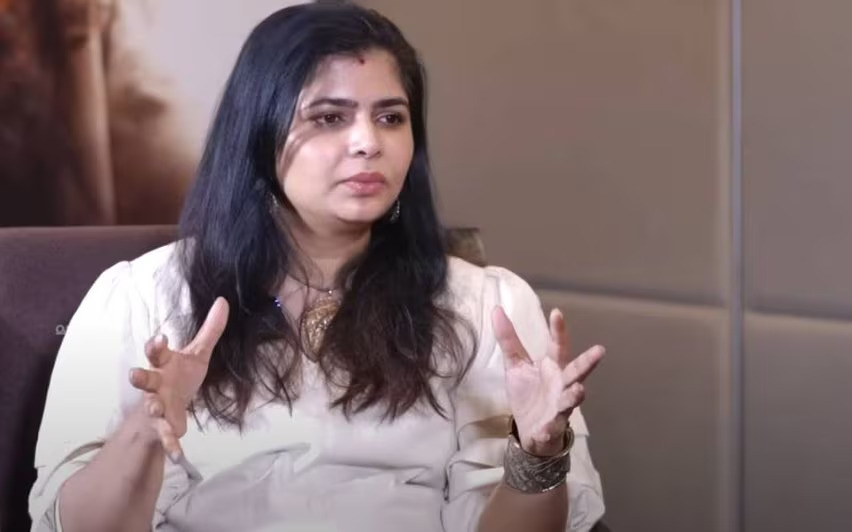Few playback singers in South India have stirred up as much controversy as Chinmayi Sripada. Known as the sweet voice behind hits in Tamil, Telugu, and Hindi cinema, she’s also one of the most outspoken artists in an industry that often expects women to stay quiet. Over the past few years, Chinmayi’s career and public image have been defined by a string of controversies, most of which have sprung from one thing: her refusal to look the other way.
The Spark That Started It All
Back in 2018, when the #MeToo movement finally reached India, Chinmayi took a bold leap. She publicly accused legendary lyricist Vairamuthu of sexual harassment. The singer alleged that during a trip to Switzerland years earlier, she was pressured to “cooperate” with him — an accusation Vairamuthu denied. Chinmayi also became a vocal platform for other women in the entertainment world who feared speaking up.
Her decision to stand up to someone as powerful as Vairamuthu shook the Tamil film industry. Many applauded her courage, but there was also a strong backlash. Almost overnight, her opportunities in Tamil cinema began to dry up.
Blacklisted by Her Industry
Chinmayi often describes this period as a “shadow ban.” Following her #MeToo revelations, she was controversially expelled from the South Indian Cine, Television Artistes and Dubbing Artistes Union (SICTADAU). The official reason? Alleged non-payment of fees — a claim Chinmayi flatly rejects, saying she had paid her lifetime membership in full.
The expulsion wasn’t just a procedural issue. It shut the door on dubbing and playback work in Tamil cinema, despite her being one of the most recognizable voices. Even top actors like Kamal Haasan, who had long been vocal about women’s rights, remained silent on her predicament — a silence she would call out more than once.
A Lone Battle Against Powerful Figures
The controversy went beyond Vairamuthu. Chinmayi also supported other survivors who spoke against actor-politician Radha Ravi, who was then president of the dubbing union. Following this, she clashed directly with him and other senior industry figures over issues of transparency and accountability in SICTADAU.

In a bold move, she even attempted to contest for the president’s post of the dubbing union in 2020. It was a rare sight — a prominent singer-turned-activist challenging the status quo. Even though she wasn’t elected, the fact that she ran sent a strong message that she wasn’t backing down.
Raising Her Voice Again — The Hema Committee Report
Chinmayi recently spoke up again after the release of the Hema Committee report, which exposed systemic harassment in the Malayalam film industry. For Chinmayi, this report was proof that her own allegations weren’t isolated incidents — they were part of a larger, deeply rooted culture of abuse across regional cinema.
Her public statements about the report took direct aim at the nexus of politics, money, and power that allows harassment to continue unchecked. And while some figures in Tamil cinema tried to brush aside her remarks, she stuck to her position, calling for action and reforms.
Standing Tall, Despite Personal Attacks
The more Chinmayi spoke up, the more personal the attacks became. Trolls targeted her relentlessly online. Rumors about her personal life — including misleading claims about her becoming a mother through surrogacy — did the rounds. Many tried to paint her as an attention-seeker or someone using controversy to stay relevant.
Yet Chinmayi kept going. Whether it was filing legal cases, talking to the media, or sharing her thoughts on social platforms, she refused to stay quiet.
Also Read….
More Than Just a Voice
In the end, Chinmayi’s controversies reflect something deeper — the price a woman pays for challenging powerful men in a close-knit industry. Her career may have suffered, and work may have been taken away, but she’s remained clear-eyed and unapologetic.
More than a playback singer, she has become a symbol of resilience. Even as sections of the entertainment world try to look past her, Chinmayi continues to speak for those without a platform, making sure the hard questions don’t disappear. And that, perhaps, is her most powerful performance yet.
Writer- Subham Choudhary
